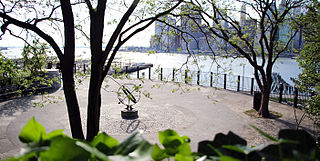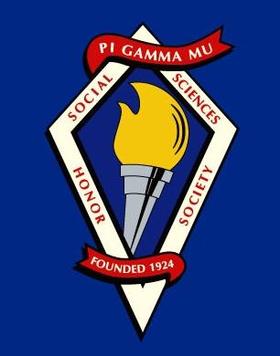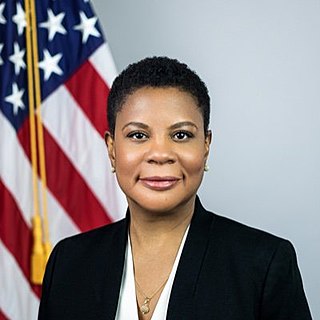Frederick Howard Buttel was the William H. Sewell Professor of Rural Sociology at the University of Wisconsin–Madison. A prominent scholar of the sociology of agriculture, Buttel was well known also for his contributions to environmental sociology.
William Julius Wilson is an American sociologist, a professor at Harvard University, and an author of works on urban sociology, race, and class issues. Laureate of the National Medal of Science, he served as the 80th President of the American Sociological Association, was a member of numerous national boards and commissions. He identified the importance of neighborhood effects and demonstrated how limited employment opportunities and weakened institutional resources exacerbated poverty within American inner-city neighborhoods.

Science and technology studies (STS) or science, technology, and society is an interdisciplinary field that examines the creation, development, and consequences of science and technology in their historical, cultural, and social contexts.

The American Sociological Association (ASA) is a non-profit organization dedicated to advancing the discipline and profession of sociology. Founded in December 1905 as the American Sociological Society at Johns Hopkins University by a group of fifty people, the first president of the association would be Lester Frank Ward. Today, most of its members work in academia, while around 20 percent of them work in government, business, or non-profit organizations.

The sociology of scientific knowledge (SSK) is the study of science as a social activity, especially dealing with "the social conditions and effects of science, and with the social structures and processes of scientific activity." The sociology of scientific ignorance (SSI) is complementary to the sociology of scientific knowledge. For comparison, the sociology of knowledge studies the impact of human knowledge and the prevailing ideas on societies and relations between knowledge and the social context within which it arises.

Theda Skocpol is an American sociologist and political scientist, who is currently the Victor S. Thomas Professor of Government and Sociology at Harvard University. She is best known as an advocate of the historical-institutional and comparative approaches, as well as her "state autonomy theory". She has written widely for both popular and academic audiences. She has been President of the American Political Science Association and the Social Science History Association.
The American Council of Learned Societies (ACLS) is a private, nonprofit federation of 75 scholarly organizations in the humanities and related social sciences founded in 1919. It is best known for its fellowship competitions which provide a range of opportunities for scholars in the humanities and related social sciences at all career stages, from graduate students to distinguished professors to independent scholars, working with a number of disciplines and methodologies in the U.S. and abroad.

The Social Science Research Council (SSRC) is a US-based, independent, international nonprofit organization dedicated to advancing research in the social sciences and related disciplines. Established in Manhattan in 1923, it maintains a headquarters in Brooklyn Heights with a staff of approximately 70, and small regional offices in other parts of the world.
The Ludwik Fleck Prize is an annual award given for a book in the field of science and technology studies. It was created by the 4S Council in 1992 and is named after microbiologist Ludwik Fleck.

Stephen William Woolgar is a British sociologist. He has worked closely with Bruno Latour, with whom he wrote Laboratory Life: The Construction of Scientific Facts (1979).

Pi Gamma Mu or ΠΓΜ is the oldest and preeminent honor society in the social sciences. It is also the only interdisciplinary social science honor society. It serves the various social science disciplines which seek to understand and explain human behavior and social relationships as well as their concomitant problems and issues. Pi Gamma Mu's constitution defines the social sciences to include the disciplines of history, political science, sociology, anthropology, economics, psychology, international relations, criminal justice, social work, social philosophy, history of education, and human geography. Membership is also extended to interdisciplinary social science fields that build on the core social science disciplines, such as business administration, education, cultural and area studies, public administration, and organizational behavior.

The Association for Slavic, East European, and Eurasian Studies (ASEEES) is a scholarly society "dedicated to the advancement of knowledge about Central Asia, the Caucasus, Russia, and Eastern Europe in regional and global contexts." The ASEEES supports teaching, research, and publication relating to the peoples and territories within this area.

Alondra Nelson is an American academic, policy advisor, non-profit administrator, and writer. She is the Harold F. Linder chair and professor in the School of Social Science at the Institute for Advanced Study, an independent research center in Princeton, New Jersey. From 2021 to 2023, Nelson was deputy assistant to President Joe Biden and principal deputy director for science and society of the White House Office of Science and Technology Policy (OSTP), where she performed the duties of the director from February to October 2022. She was the first African American and first woman of color to lead OSTP. Prior to her role in the Biden Administration, she served for four years as president and CEO of the Social Science Research Council, an independent, nonpartisan international nonprofit organization. Nelson was previously professor of sociology at Columbia University, where she served as the inaugural Dean of Social Science, as well as director of the Institute for Research on Women and Gender. She began her academic career on the faculty of Yale University.

Sheila Sen Jasanoff is an Indian American academic and significant contributor to the field of Science and Technology Studies. In 2021 she was elected to the American Philosophical Society. Her research has been recognized with many awards, including the 2022 Holberg Prize "for her groundbreaking research in science and technology studies."
The John Desmond Bernal Prize is an award given annually by the Society for Social Studies of Science (4S) to scholars judged to have made a distinguished contribution to the interdisciplinary field of Science and Technology Studies (STS). The award was launched in 1981, with the support of Eugene Garfield.
Tharailath Koshy Oommen is an Indian sociologist, author, teacher, and Professor Emeritus at the Centre for the Study of Social Systems, Jawaharlal Nehru University. He was awarded Padma Bhushan, the third highest Indian civilian award in 2008 for his services to the fields of education and literature by the President of India.
Kathleen Thelen is an American political scientist specializing in comparative politics. She is the Ford Professor of Political Science at the Massachusetts Institute of Technology (MIT), a permanent external member of the Max Planck Institute for the Study of Societies (MPIfG), and a faculty associate at the Center for European Studies (CES) at Harvard University.
Diana Elizabeth Forsythe was a leading researcher in anthropology and a key figure in the field of science and technology studies. She is recognized for her significant anthropological studies of artificial intelligence and informatics, as well as for her studies on the roles of gender and power in computer engineering.
The International Society for the History, Philosophy, and Social Studies of Biology (ISHPSSB) is an international academic organization founded in 1989. THe society hosts the largest and most important meeting for the fields of philosophy of biology, history of biology, and the social studies/science studies/sociological studies of biology. The society hosts a biennial meeting, supports off-year workshops, runs a monthly newsletter, and offers various types of academic prizes.








